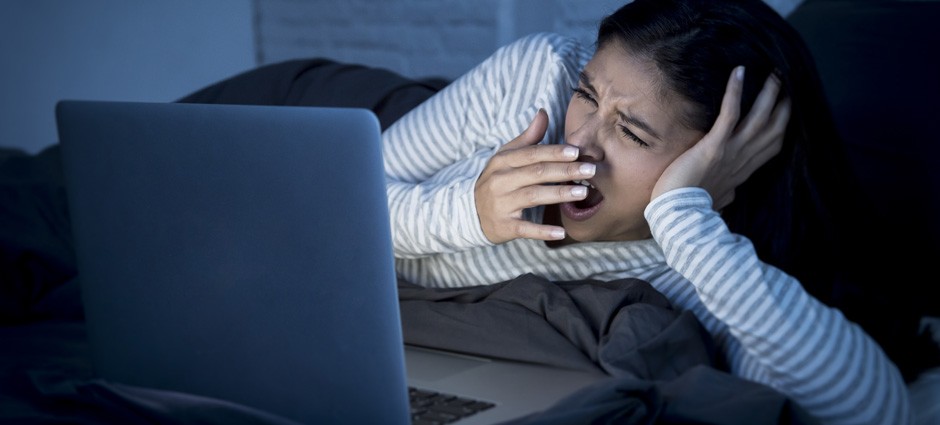There are basic things we can do to sleep better, says Mathias Basner of the University of Pennsylvania. In analyzing sleep habits from 2003 to 2016, he and his colleagues recently discovered that we are in fact sleeping incrementally longer each night than in years past. He chalks this up to people becoming more aware of the importance of sleep and possibly to having more time, thanks to being able to order groceries or bank online. Although the changes he and his colleagues noted don’t seem like much—an extra 17 minutes more sleep per night for the average American—that equates to a full four days more sleep per year. That adds up.
Referred to as sleep hygiene, this list of practices to get a good night’s sleep is straightforward—but can be surprisingly hard to follow.
1. Establish a bedtime ritual
Establish a routine—reading, stretching or meditating—and a regular bedtime that signals to your body it’s time to sleep.
2. Minimize light exposure
If you expose yourself to bright light before bedtime, it will signal to your body that it’s still early in the day. The blue light emitted from screens, such as computers and phones, is a particular culprit. “Try not to expose yourself to bright blue light in the evening. Start switching off lights in the house, and don’t take your phone or computer to bed,” says Basner. He notes that some cell phones can now change the screen color to a more reddish spectra composition at night. Even so, experts suggest buying an alarm clock and checking your cell phone and computer at the bedroom door.
3. Keep the house cool, but not too cool
“As you fall asleep, the body dumps a lot of heat. If the room is too warm, it is harder for the body to do this,” says Basner. Consider a room temperature of approximately 60 to 67 degrees.
4. Exercise during the day
Exercise has been tied to a better night’s sleep. However, do it earlier in the day, not too close to bedtime, or you may be too revved up to sleep.
5. Time management
Try working your schedule around getting enough sleep. “We have to manage our time better during the day. And what people find is if they get better sleep, they are more efficient the next day, and this feeds back into a positive cycle rather than a negative one,” Michael Scullin of Baylor University.
6. Limit caffeine
It’s OK to drink coffee, but cut it off at least six hours before bedtime for a good night’s sleep.
See also Sleep Better Naturally.
7. Write a To-Do List
In a recent study, Scullin and his team discovered that students slept better if they wrote out a “to-do” list before they went to sleep. “I think that stress or anxiety is one of the main hurdles to people falling asleep at night, and a lot of the reason why people use electronics before bed—they are trying to distract themselves from their worries.” Scullin found that list-making helped. “The act of writing out what is worrying us does help to decrease what is worrying us. Maybe if you write it out, you no longer need to remember it because now it’s on your list,” he theorizes. But maybe it helps, he says, because it’s only a worry as an abstract in your mind. When you write it on your list, you realize it’s not so bad.
Scullin says this is just one example of nonmedicine-based sleep remedies. If you’re having problems sleeping, he recommends seeing a sleep specialist. “Beyond sleep medications, there are all sorts of things that a psychologist or physician who is trained in sleep can offer,” he says.
See also Supplements for Fatigue and Sleep Deprivation.
Bonus: How to fuel restful sleep
Hungry before bed? Have a snack, but don’t eat too much too close to bedtime or digestion will interfere with your sleep. “Don’t go to bed full or famished, because being hungry will throw off blood sugar and cause you to wake,” says sleep psychologist Rubin Naiman, Ph.D., clinical assistant professor of medicine at The University of Arizona Center for Integrative Medicine. If you must snack, focus on complex carbs with a little protein and a little fat.
Sleep Shopping List
- Complex carbohydrates: Think vegetables, legumes or whole grains like brown rice or quinoa. Avoid refined or processed carbs, such as bagels, white bread or rice, which will spike your blood sugar.
- Healthy fats: Salmon, avocados, eggs, dairy and nuts all contain healthy or unsaturated fats, as well as a good dose of protein.
- L-tryptophan: Wild-caught seafood, grass-fed beef, seeds and nuts, whole grains, dairy and legumes all contain the amino acid L-tryptophan, which synthesizes the sleep-inducing hormones serotonin and melatonin.

